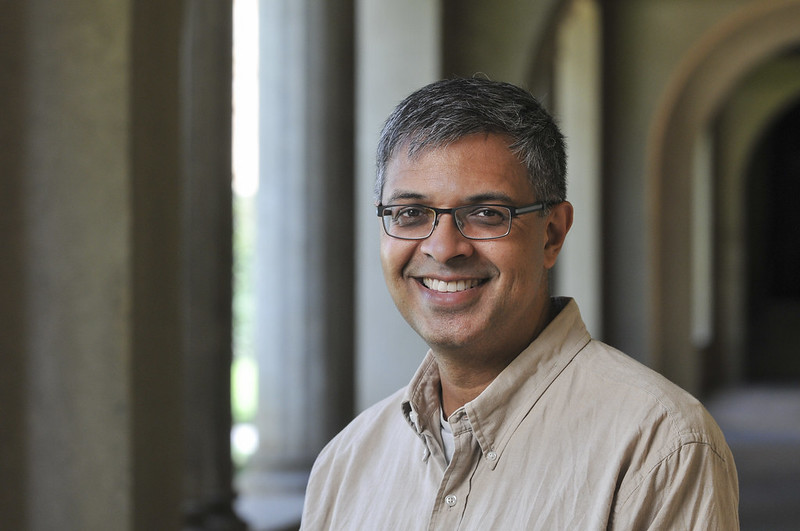WASHINGTON — President elect Donald J. Trump announced on Tuesday night that he would nominate Dr. Jay Bhattacharya, a Stanford professor of health policy and outspoken critic of the nation’s public health system, to lead the National Institutes of Health.
In a statement on social media, Trump said that “Together, Jay and RFK Jr. will restore the NIH to a Gold Standard of Medical Research as they examine the underlying causes of, and solutions to, America’s biggest health challenges, including our Crisis of Chronic Illness and Disease,” referring to Robert F. Kennedy Jr., his choice to lead the NIH’s parent agency, the Department of Health and Human Services.
If confirmed by the U.S. Senate, Bhattacharya would lead the $47.5 billion agency that is the world’s largest funder of biomedical research. NIH is a collection of 27 institutes and centers focusing on cancer, infectious disease, mental health, heart and lung ailments and drug abuse, among other medical matters.
“I am honored and humbled by President Trump’s nomination of me to be the next NIH
director,” Bhattacharya said on X. “We will reform American scientific institutions so that they are worthy of trust again and will deploy the fruits of excellent science to make America healthy again!”
In choosing Bhattacharya, Trump is picking someone with expertise in economics and health care policy who leads Stanford’s Center on the Demography and Economics of Health and Aging. With an MD and PhD in economics, he is a senior fellow at the Stanford Institute for Economic Policy Research, as well as a research fellow at the Hoover Institution.
But he has no experience in basic or applied clinical biomedical research and has never held a government post. For the past 50 years, NIH has been led by known authorities in fields ranging from radiology to genetics. Many of them directed smaller agencies before stepping up to lead NIH, a job with immense administrative responsibilities.
He would replace Dr. Monica M. Bertagnolli, a cancer surgeon and lab scientist who championed the use of artificial intelligence tools to create a research database. She also worked to make clinical trials more accessible to rural and minority patients.
Prior to spring 2020, Bhattacharya was a little-known academic who specialized in health policy issues such as physician payment, costs and quality of care, geographic variation in medical practices and regulatory surveillance of FDA-approved products. Prior to joining the Stanford faculty, he was an economist at the RAND Corporation and taught classes in the economics department at UCLA.
But when the COVID pandemic broke out, Bhattacharya emerged as a leading critic of the interventions taken against the pandemic, such as business and school closings, mask and social distancing advisories and lockdowns.
The lockdowns and school closures created economic and societal devastation, he argued. He called for pursuing “herd immunity” through natural infections of those who were not sick or elderly.
He took aim at the NIH, saying it engaged in “massive suppression of scientific debate and research.” The CDC, he said, “exaggerated risk.” The FDA approved vaccines and therapeutics with “little to no evidence, sometimes based on faulty modeling,” he claimed.
In response, he experienced racist attacks and death threats during the pandemic, he wrote.
He praised the outcome of the 2024 election, calling it a “vote against the establishment and in favour of fundamental reforms,” in a recent essay on the website Unherd. The Biden administration engaged in “orchestrated PR campaigns,” he wrote, “spreading falsehoods and misinformation.”
Critics say he lacks the credentials needed to lead NIH.
“NIH is an institution that is founded on the basis of respect for subject matter expertise,” said Dr. Robert Morris, an epidemiologist and former professor at Tufts University School of Medicine.
“Dr. Bhattacharya has repeatedly shown disregard for subject matter expertise over the course of the COVID pandemic,” he said, “dismissing feedback from experts in virology, pathology, and epidemiology, while he, as an economist, was conducting an epidemiological study, despite having almost no training or experience in the field.”
Lucky Tran, a science communicator and PhD biochemist based in New York City, said “Dr.Bhattacharya has spread misinformation about vaccines and COVID, fought against lifesaving public health measures during the pandemic, and is backed by well-funded organizations which undermine public health in order to further corporate interests. More than ever, the NIH needs to be led by an expert who is a strong supporter of groundbreaking research on new vaccines, treatments, and emerging infectious diseases. ”
It was rumored that the Trump team was initially seeking candidates who could bring strong operational experience to helm the huge health research agency. According to the biopharma newsletter Endpoints News, the search included Moncef Slaoui, a longtime pharmaceutical executive at GSK who led Operation Warp Speed, the successful COVID-19 vaccine rollout by the previous Trump Administration. A source told the newsletter that Slaoui said he was not interested, and volunteered other names.
But Bhattacharya’s contrarian stance has earned support with many leading conservatives on Capitol Hill, who say they are seeking reformers willing to battle the bureaucracy.
“Dr. Bhattacharya understands the need for significant reform following the failure of the public health establishment during the COVID-19 pandemic and has the knowledge and fortitude to do it,” said Rep. Brad Wenstrup (R-Ohio), chairman of the Select Subcommittee on the Coronavirus Pandemic, in a statement. “He would ensure that public health returns to science-based solutions — not bureaucratic failed practices.”
Bhattacharya is a co-author of the controversial Great Barrington Declaration, a manifesto published in October 2020 that argued for an easing of restrictions in favor of “focused protection” — sheltering those at risk of dying but allowing younger people to return to public life and build up immunity through the natural spread of the virus.
He accused Dr. Anthony Fauci, former director of the National Institute of Allergy and Infectious Disease, of seeking to destroy the careers of dissenting scientists.
Bhattacharya was a plaintiff in a lawsuit, Murthy v. Missouri, that claimed Biden administration officials pressured social media outlets to suppress content critical of the government’s COVID policies. The U.S. Supreme Court in June ruled the plaintiffs lacked standing to pursue their claims.
Dr. Jay Bhattacharya is a professor of health policy at Stanford University and a research associate at the National Bureau of Economics Research. He directs Stanford’s Center for Demography and Economics of Health and Aging.
He is a supporter of Health and Human Services secretary nominee Robert Kennedy Jr., commending Kennedy’s vows to end the United States’ chronic disease epidemic and clean up corruption in the medical and pharmaceutical industries.
If appointed, Bhattacharya would have no direct authority over the CDC and FDA, agencies he fiercely criticized during the COVID pandemic, The CDC, FDA and NIH are separate operating divisions within the Department of Health and Human Services.
At NIH, Bhattacharya vowed he would change NIH’s “top-down leadership,” setting term limits on institute directors to encourage the influx of new ideas, he told NewMax TV. He also said he would strengthen the role of replication in research, helping build confidence in the reliability and generalizability of study results.
“Turn the NIH from something that…control(s) society,” he said on NewsMax, “into something that’s aimed at the discovery of truth to improve the health of Americans.”












